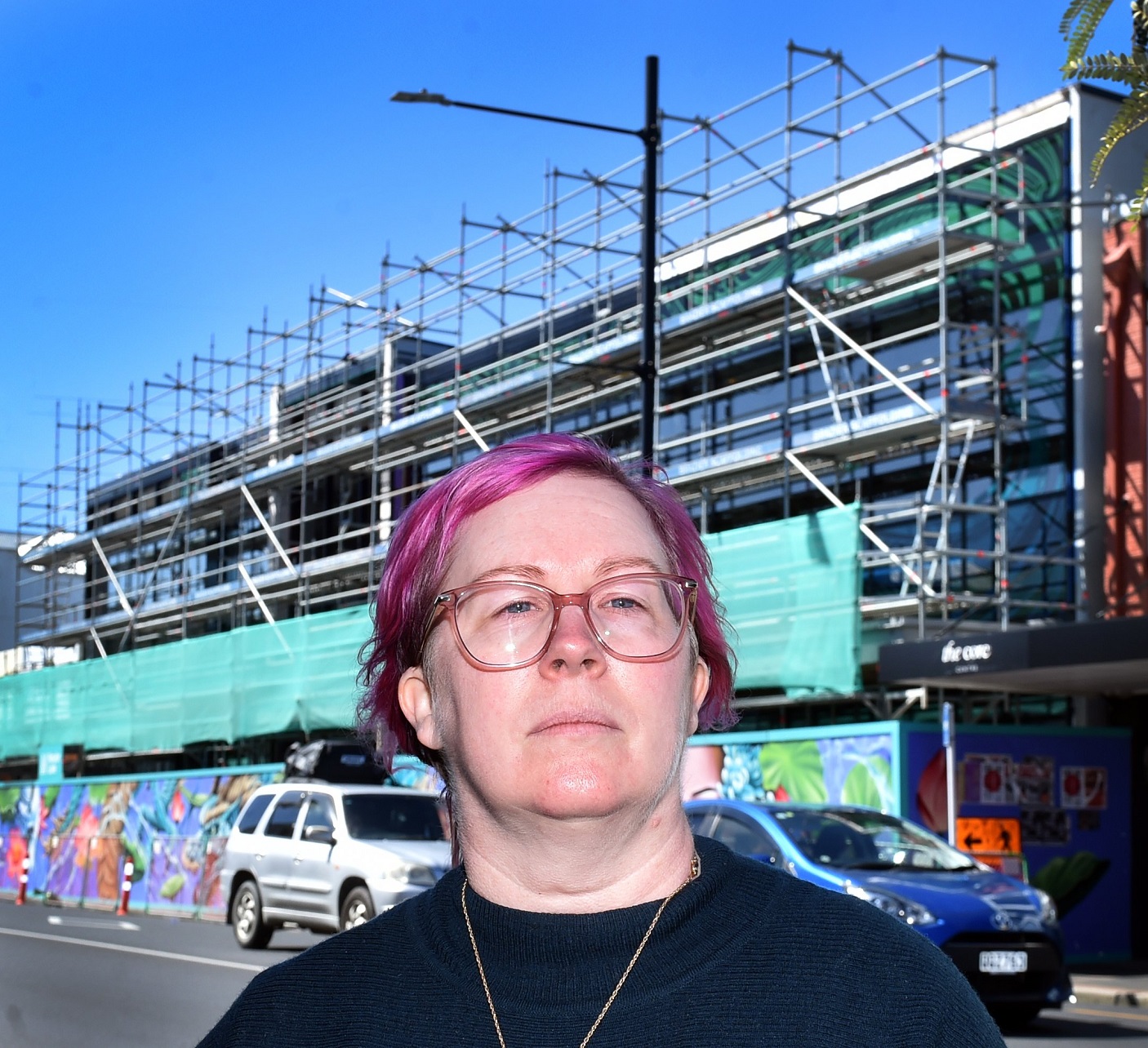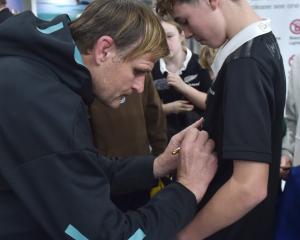
In a decision made by the Dunedin City Council in November, but kept under wraps until yesterday, councillors voted that the 2000sqm two-storey building at 138-156 King Edward St would still go ahead and open by next June. But only the 1000sq m ground floor would be used for the South Dunedin Library and Community Complex (SDLCC).
Due to rising costs the upper floor would be rented out as "modern office space ... to commercial tenants", a DCC spokeswoman said.
The upper floor had previously been designed as a community hub after a co-design process involving consultation with community groups.
Community engagement manager for the South Dunedin Community Network Kirsten Gibson said the news was a U-turn on a promise made that had been for the community’s benefit.
"The community has waited decades for a library and community hub. The decision feels like a betrayal to all those community groups who have been part of the extensive consultation process for the design of this space," she said.
"This comes at a time when our council is investing hundreds of thousands of dollars in a hospital campaign to hold the coalition government accountable for broken promises. It is hard not to see the parallel in this situation. This may be a simple cost-saving measure for the council, but this decision will have a significant impact on community groups in South Dunedin."
Ms Gibson said a central hub was needed to enable the community to connect, resulting in health benefits and information sharing.
DCC’s art, culture and recreation general manager Jeanette Wikaira had sent a letter telling South Dunedin community groups about the decision.
In the letter, Ms Wikaira said building-related expenses had continued to rise and the DCC property team was starting advertising and selecting tenants who could pay "full market rent" to help the council to cover the SDLCC’s ongoing running costs, which include staff and maintenance.
The council was hoping to find one or more tenants to take commercial leases "that are in keeping with the community nature of the complex".
She added: "I know some of you will be disappointed with this news. We remain committed to working with you and supporting community spaces in South Dunedin, including for the South Dunedin Community Network."
Dream South D board member Bridget Schaumann said the letter from Ms Wikaira had come as a "shock" to charity leaders.
The process of consultation had been "fabulous" and charities had felt they had "skin in the game".
The charities had been looking forward to something that seemed "modern and cool but is now shrinking by the day. It is disappointing and sad. We have had something taken away as a fait accompli without any discussion."
Some planned meeting room spaces on the ground floor wouldn’t work for some larger and noisier groups, such as play groups, she said.
She said the council should call a meeting with community groups to talk about the decision.
A council spokesperson said the decision to lease the upper level was to "help balance community needs and the financial sustainability of the new facility."
The SDLCC would cost about $2.8m a year to run.
The ground floor space would include four meeting rooms, a maker space and sound studio. Two of the meeting rooms — each with capacity for about 30 people — would be available for community use after hours. The other two meeting rooms are smaller.
The council had reviewed other rooms available to rent in South Dunedin, which included the Labour rooms and the South Dunedin Community hall.
Cr Sophie Barker said she had been shocked by the spiralling costs of the SDLCC and it was important to get the library delivered. "In these challenging financial times it is about balancing the community’s aspirations against the commercial reality," she said.
South Dunedin MP Ingrid Leary said the decision to rent out the upper floor was a "missed opportunity" and reflected the increasing financial pressures faced by local government.
"The rationale for a publicly-funded library was the identified need for convening spaces to build community and social cohesion."












